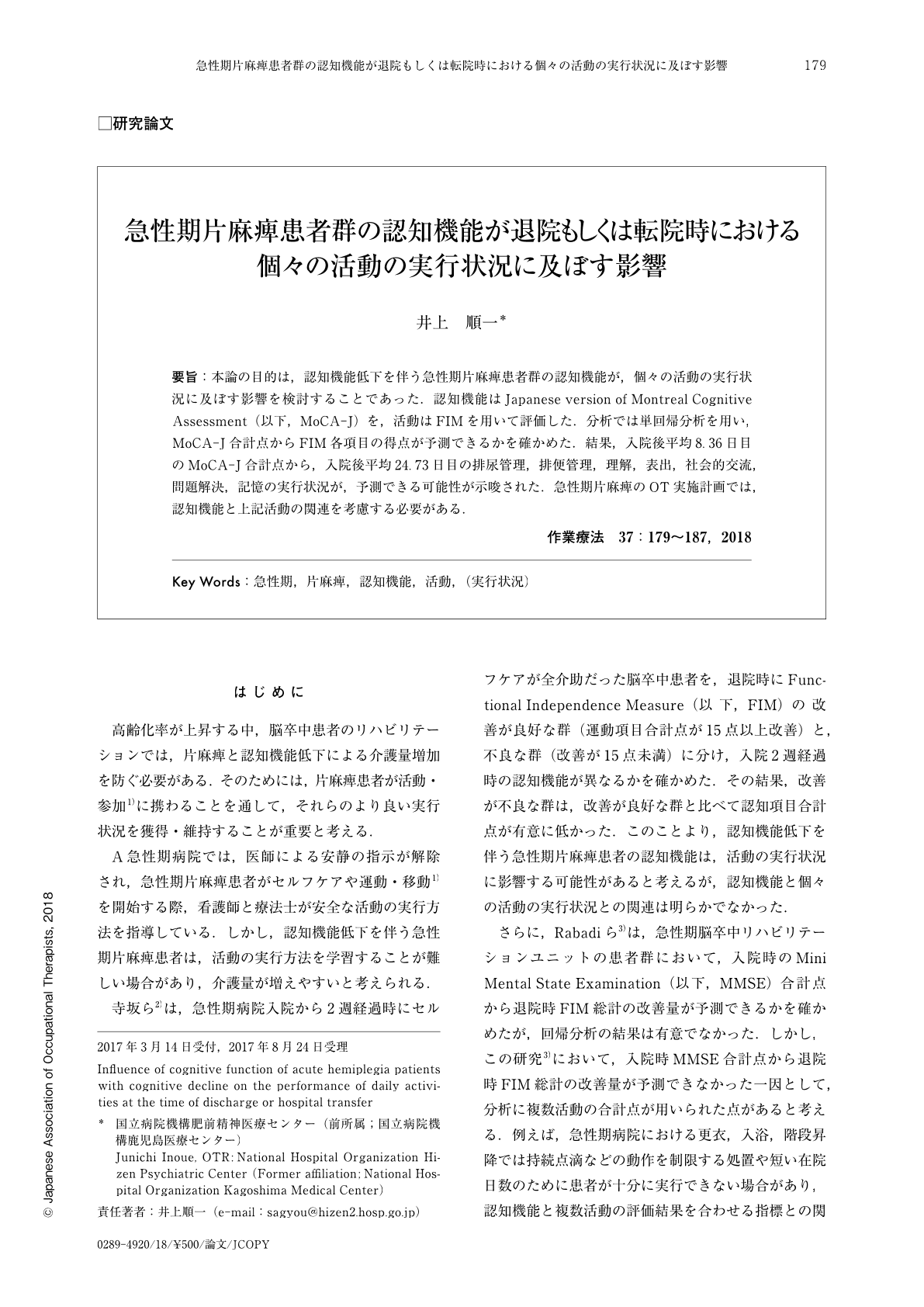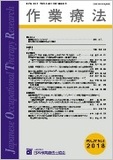Japanese
English
- 販売していません
- Abstract 文献概要
- 1ページ目 Look Inside
- 参考文献 Reference
要旨:本論の目的は,認知機能低下を伴う急性期片麻痺患者群の認知機能が,個々の活動の実行状況に及ぼす影響を検討することであった.認知機能はJapanese version of Montreal Cognitive Assessment(以下,MoCA-J)を,活動はFIMを用いて評価した.分析では単回帰分析を用い,MoCA-J合計点からFIM各項目の得点が予測できるかを確かめた.結果,入院後平均8.36日目のMoCA-J合計点から,入院後平均24.73日目の排尿管理,排便管理,理解,表出,社会的交流,問題解決,記憶の実行状況が,予測できる可能性が示唆された.急性期片麻痺のOT実施計画では,認知機能と上記活動の関連を考慮する必要がある.
Introduction: The purpose of this study was to examine the influence of cognitive function of acute hemiplegia patients with cognitive decline on the performance of daily activities at the time of discharge or hospital transfer. Methods: Subjects were 22 acute hemiplegia patients with cognitive decline. The cognitive function was assessed by Japanese version of Montreal Cognitive Assessment (MoCA-J) total score. The range of the MoCA-J total score is zero to 30 points (26 points or more is normal); the subjects in this study scored less than 25 points. The performance of each of the daily activities was assessed by 18 items of the Functional Independence Measure (FIM). The scores ranged from one to seven points per activity. Single regression analysis was used to confirm whether the performance of each activity (score of one item) could be predicted by cognitive function (MoCA-J total sore). Results: Single regression analysis suggests that the performance of the seven activities (Bladder management, Bowel management, Comprehension, Expression, Social interaction, Problem solving, and Memory) during three weeks after hospitalization (average length of hospital stay 24.73 ± 6.60 day) was predicted from the MoCA-J total score one week after hospitalization (average length of hospital stay 8.36 ± 2.75 day). Discussion: In the Occupational therapy plan for acute hemiplegia patients with cognitive decline, it is necessary to consider the possibility that quantity of care increases in the seven activities during cognitive decline.

Copyright © 2018, Japanese Association of Occupational Therapists. All rights reserved.


